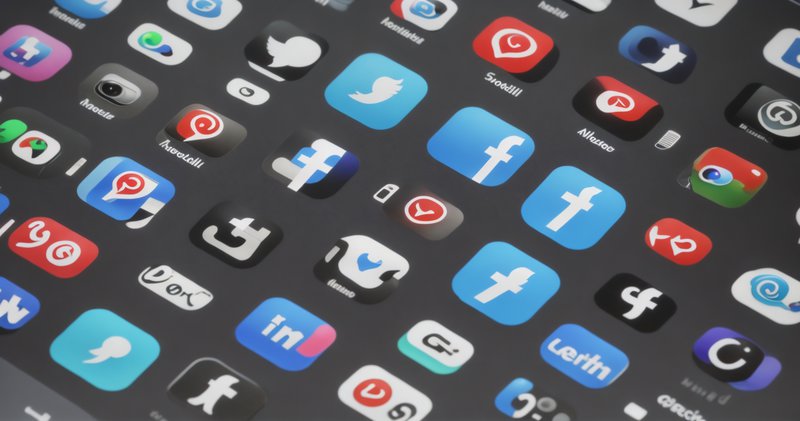What Is The Impact Of Social Media On News And Information Consumption?

Are you curious about how social media has revolutionized the way we consume news and information?
In today’s fast-paced digital age, social media platforms have become the go-to source for staying updated on current events. With just a few taps on your smartphone, you can access news articles, videos, and live updates from around the world.
The impact of social media on news consumption habits cannot be underestimated. It has not only changed the speed and accessibility of news but also influenced the way we consume and engage with it.
From breaking news and citizen journalism to the spread of misinformation and the creation of filter bubbles, social media has both positive and negative effects on our information consumption.
In this article, we will explore these impacts, delve into the role of social media in shaping public opinion, and discuss the importance of media literacy in this digital age.
So, get ready to explore the fascinating world of social media’s impact on news and information consumption.
Key Takeaways
- Social media platforms have revolutionized news consumption in the digital age, providing fast and easy access to news articles, videos, and live updates.
- The personalization of news feeds on social media can create echo chambers and filter bubbles, limiting exposure to diverse viewpoints and reinforcing existing beliefs.
- The spread of misinformation and fake news is a significant issue on social media, amplified by algorithms that prioritize engagement and sensational content.
- Media literacy is crucial in navigating the overwhelming amount of information on social media, empowering individuals to identify unreliable sources and hidden agendas and make informed decisions.
The Speed and Accessibility of News on Social Media Platforms
Get ready to have news at your fingertips like never before, thanks to the lightning-fast speed and easy accessibility of social media platforms. With just a few taps on your smartphone, you can instantly access a wealth of information from various sources around the world.
Gone are the days of waiting for the evening news or flipping through newspapers to stay informed. Social media allows news to be shared and spread within seconds, making it an incredibly efficient way to consume information.
Whether it’s breaking news, live updates, or trending stories, social media platforms deliver them directly to your feed. The convenience of having news readily available on your phone means that you can stay up-to-date wherever you are, making social media a game-changer in the way we consume news and information.
The Influence of Social Media on News Consumption Habits
You’re bound to notice how your news consumption habits shift when social media enters the picture. With the rise of social media platforms, news has become more personalized and tailored to your interests. Instead of relying on traditional news sources, you now have the power to curate your own news feed and choose what stories you want to see.
This can be both a blessing and a curse. On one hand, it allows you to access a wide range of news articles and perspectives that you may not have been exposed to before. On the other hand, it can create echo chambers and filter bubbles, where you only see news that aligns with your existing beliefs.
Social media also encourages a shorter attention span, as news is presented in bite-sized snippets rather than in-depth articles. As a result, it’s important to be critical of the news you consume on social media and seek out reliable sources to ensure you’re getting accurate and unbiased information.
The Role of Social Media in Breaking News and Citizen Journalism
With the rise of social media, it’s fascinating how quickly breaking news spreads and how citizen journalists play a crucial role in sharing real-time updates.
Social media platforms like Twitter and Facebook have become the go-to sources for breaking news, allowing users to share information and updates within seconds. It’s no longer just traditional news outlets that break the news; everyday people can now report on events as they unfold.
This has both positive and negative implications. On one hand, citizen journalism allows for a more diverse range of perspectives and immediate coverage of events. On the other hand, the lack of professional training and verification processes can lead to the spread of misinformation and fake news.
It’s important for users to critically evaluate the sources and information they come across on social media platforms to ensure they are consuming accurate and reliable news.
The Spread of Misinformation and Fake News on Social Media
It’s mind-boggling how misinformation and fake news can quickly circulate on social media, causing confusion and frustration among users. With the rise of social media platforms, anyone can share news or information without fact-checking, leading to the spread of false narratives.
The anonymity and ease of sharing on social media make it a breeding ground for misinformation. People often rely on their social media feeds for news updates, making it easier for fake news to go viral and create a significant impact. Moreover, algorithms that prioritize engagement and sensational content further amplify the spread of misinformation.
This not only undermines the credibility of reliable news sources but also affects public perception and decision-making. It is crucial for users to be vigilant, verify information, and rely on trusted sources to combat the spread of fake news on social media.
The Filter Bubble Effect: How Social Media Can Create Echo Chambers
The filter bubble effect can trap you in a limited perspective, reinforcing your existing beliefs and isolating you from diverse opinions and ideas.
Social media algorithms are designed to show you content that aligns with your preferences and interests, creating an echo chamber where you are only exposed to information that confirms your existing beliefs.
This can lead to a distorted view of reality and hinder your ability to critically evaluate different perspectives. By constantly reinforcing your own viewpoints, you may become less open to alternative ideas and less tolerant of opposing viewpoints.
This filter bubble effect can have serious implications for news and information consumption, as it can contribute to the spread of misinformation and the polarization of society.
It is important to actively seek out diverse sources of information and engage with different viewpoints to break free from the filter bubble and foster a more well-rounded understanding of the world.
The Impact of Algorithmic News Feeds on Information Diversity
Now let’s dive deeper into the impact of algorithmic news feeds on information diversity.
With the rise of social media, these feeds have become the primary way many people consume news and information. However, this convenience comes at a cost. Algorithmic news feeds, driven by complex algorithms, tailor the content we see based on our past preferences and behaviors.
This can create a bubble of information, limiting our exposure to diverse viewpoints and perspectives. As a result, we may unknowingly become trapped in a filter bubble, reinforcing our existing beliefs and isolating us from alternative ideas. This can hinder our ability to critically analyze information and engage in meaningful discussions.
The consequences of this narrow exposure are profound and include a loss of empathy, polarization, and a weakened democracy.
Social Media’s Role in Political Discourse and Public Opinion
Get ready to explore how social media shapes your political views and influences what you believe. Social media has become a powerful platform for political discourse and shaping public opinion.
Through platforms like Facebook, Twitter, and Instagram, individuals can easily share their political thoughts and engage in discussions with others. These online conversations can have a significant impact on how people perceive political issues and form their opinions.
Social media allows for the rapid spread of information, making it easier for political news, memes, and videos to go viral and reach a wide audience. However, the downside is that social media can also contribute to the spread of misinformation and the creation of echo chambers, where individuals are only exposed to viewpoints that align with their own.
It is important to critically evaluate the information we consume on social media and seek out diverse perspectives to ensure a well-rounded understanding of political issues.
The Importance of Media Literacy in the Age of Social Media
Developing strong media literacy skills is crucial in today’s digital age, as it empowers you to critically analyze and discern the credibility and bias of content you encounter on various online platforms.
With the rise of social media, the amount of information available is overwhelming, and it can be challenging to differentiate between accurate news and misinformation. Media literacy equips you with the tools to navigate this information landscape effectively.
By understanding how news is produced, consumed, and shared on social media, you can identify unreliable sources and recognize the potential influence of hidden agendas. Media literacy also helps you become an active participant in the online community, allowing you to engage in meaningful discussions and contribute to a healthy information ecosystem.
In a world where misinformation spreads rapidly, media literacy empowers you to make informed decisions and be a critical thinker in the age of social media.
Frequently Asked Questions
How does social media affect the credibility of news sources?
Social media can significantly impact the credibility of news sources. False information can spread quickly, making it difficult to discern what is trustworthy. It’s important to fact-check and verify sources before believing or sharing news.
What are the potential consequences of relying on social media for news consumption?
Relying on social media for news consumption can have potential consequences. It may lead to the spread of misinformation, lack of fact-checking, and echo chambers, limiting your exposure to diverse perspectives and reliable sources.
How can individuals identify and avoid misinformation on social media platforms?
To identify and avoid misinformation on social media, you should fact-check information before sharing or believing it. Look for credible sources, check multiple sources, and be cautious of sensationalized or biased content.
What steps can social media platforms take to combat the spread of fake news?
Social media platforms can combat the spread of fake news by implementing fact-checking mechanisms, promoting credible sources, and penalizing users who share false information. They must prioritize the accuracy and reliability of information to ensure a trustworthy environment.
How does social media influence public perception and understanding of current events?
Social media influences public perception and understanding of current events by providing real-time updates, diverse perspectives, and the ability to share and discuss information. However, it can also contribute to misinformation and echo chambers.





